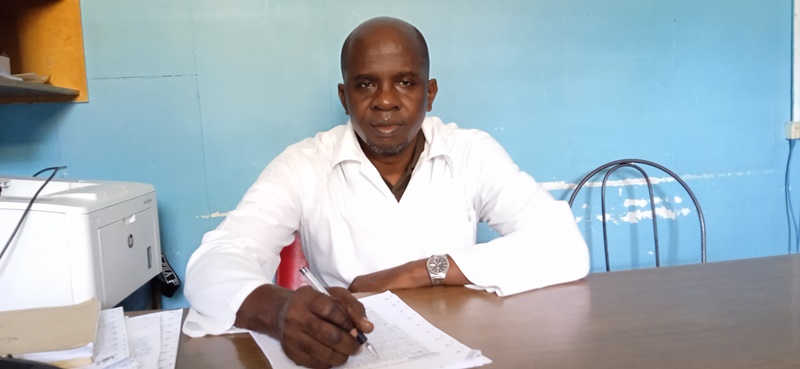 Malaria ceased to be a health problem in Guantanamo and all Cuba since the late 1960s.For this reason, in 1973 the country was certified by the Pan American and World Health Organizations as free of the scourge, which continues to affect other geographic areas.
Malaria ceased to be a health problem in Guantanamo and all Cuba since the late 1960s.For this reason, in 1973 the country was certified by the Pan American and World Health Organizations as free of the scourge, which continues to affect other geographic areas.
Doctor Leonel Heredia Carpintrú, epidemiologist and deputy director at the Hygiene Provincial Center, said that a patient who entered the country on February 22 from Angola and on March 10 had clinical manifestations, which led him to be admitted to the main hospital institution in Guantanamo, where the condition was confirmed, which qualifies as non-endemic malaria, due to its foreign origin.
“This pathology – he also said – is caused by Plasmodium, a parasite inoculated from one patient to another by the Anopheles mosquito, which infects with malaria and has evening habits, unlike Aedes aegypti, which is active in the morning and transmits dengue and chikungunya.”
Human malaria has four forms of presentation. The most serious may appear with clinical symptoms of fever, chills, sweats and headache, jaundice;coagulation defects, shock, kidney and liver failure, acute encephalopathy; pulmonary and cerebral edema, coma and death.
Prompt treatment is essential, even in mild cases, due to the possible sudden onset of irreversible complications.
He pointed out that the Cuban control system enables, for example, to know the entry into the country of each of the 4 thousand travelers who, this year, have visited the province (United States, Venezuela, Italy, Africa…), who are epidemiologically controlled from their
arrival to the country by the Health authorities and visited in accordance with a protocol at their destinations to rule out the disease of dengue, COVID-19, malaria or another transmissible entity and control the vector indices in the environment.
The specialist insisted on the importance of seeing a doctor in case of fever and recalled that dengue is present in the province, whose rate is 4.4 patients per 100 thousand inhabitants, with the highest peak in Baracoa (rate 19.4),
very high although marked by a continuous decline in the last nine months.
However, he warned that the upcoming rainy season and rising temperatures are factors that favor the mosquito, whose presence today is high, especially in the municipalities of Guantanamo, Manuel Tames and Caimanera.
Source: Venceremos
Translated By Ilia Charon